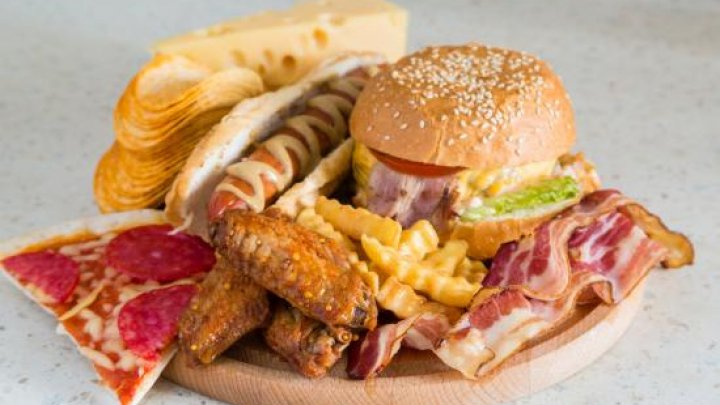Theresa May demands bans on junk food advertising before 9pm
 foto: publika.md
foto: publika.md
An influential group of MPs is demanding a ban on junk food advertising before 9pm, among a raft of new measures to overturn the UK’s childhood obesity epidemic.
Reforms pitched by the Health and Social Care Committee include bans on permitting cartoon characters to promote unhealthy snacks, outlawing sweets at supermarket checkouts and forcing restaurants to list calorie counts on their menus.
The report said failure to ban adverts for unhealthy foods before 9pm would leave a “worrying gap” in the government’s efforts to tackle obesity and would “call into question” Theresa May’scommitment to the issue.
The intervention, led by influential Tory backbencher Dr Sarah Wollaston, will ramp up pressure on the government, which is due to publish the second part of its obesity strategy this summer.Dr Wollaston, the committee chair, said: “Children are becoming obese at an earlier age and staying obese for longer.
“Obesity rates are highest for children from the most disadvantaged communities and this unacceptable health inequality has widened every year since records began.
“The consequences for these children are appalling and this can no longer be ignored.”
She called for a “whole systems approach” to fighting obesity where local authorities can use planning and licensing powers to reduce the number of junk food outlets in their jurisdiction while ministers bring in tougher restrictions on marketing unhealthy treats.
This includes a ban on sponsorship deals by brands overwhelmingly associated with high fat, sugar and salt products of sports clubs, venues, youth leagues and tournaments.
The committee also called for the sugar tax to extend to milkshakes and suggested further “fiscal measures” should be included in the government’s action plan.
Obesity is a significant public health concern, which cost the NHS in England more than £6.1bn last year through treatment of related health problems.
Childhood obesity is also seen as a driver of health inequalities as it disproportionately affects young people from poorer communities.
Five-year-olds from the poorest backgrounds are twice as likely to be obese than their most affluent peers, soaring to three times as likely by the time they are 11 years old, the report said.
Despite major commitments from the government to tackle the issue, campaigners have warned that more needs to be done to stop the problem spiralling out of control.
Dr Max Davie, officer for health promotion at the Royal College of Paediatrics and Child Health said: “The key to a reduction of obesity is prevention and we must not hang around, action must be taken now.
“Marketing is a significant driver of obesity and we know that it influences what children consume so we strongly support the committee’s calls for a ban on advertising of junk food before 9pm and a ban on brand generated characters or licensed TV and film characters from being used to promote foods high in fat, sugar and salt.